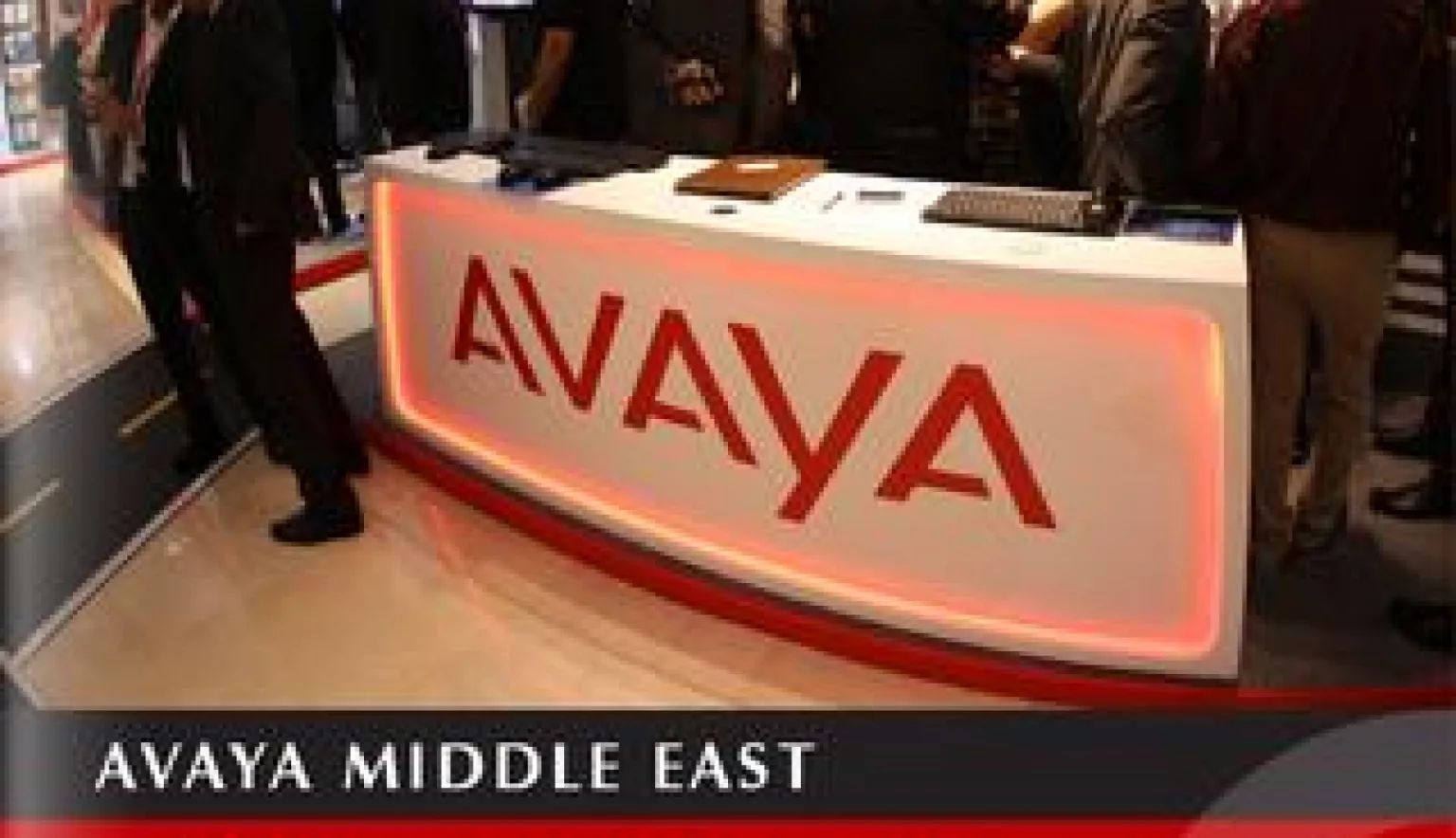As economies in the Gulf struggle with lowered oil prices and wider regional conflicts, the average CEO or CIO could be forgiven for feeling uncertain about their company’s prospects and be reluctant to invest. Avaya, a global leader in business communications software, systems and services, sees the current environment as an opportunity.
TAKING IT TO THE NEXT LEVEL
“Organisations today are revising and consolidating their priorities to identify ways to do more, with less. This plays to Avaya’s strengths, helping customers to boost productivity and efficiency with the ultimate aim to achieve sustainable business results,” says Mohammed Areff, Vice President of Middle East, Africa and Turkey, Avaya. “Companies are looking closely at what will really differentiate their services, drive business growth and attract and retain customers, all while achieving return on investment and lowering their total cost of ownership.”
Topping corporate agendas today is the subject of digital transformation, as consumers increasingly expect a reliable and secure digital experience, and businesses of all sizes are trying to figure out how to predict consumer demands to stay ahead of this transformation curve.
However, while enterprise CXOs are increasingly placing digital transformation at the centre of their corporate strategies, they face significant obstacles. According to IDC, as many as 78 percent of these siloed digital transformation initiatives will fail due to insufficient collaboration, integration, sourcing or project management by 2017.
Further, the biggest challenge facing CIOs today is talent shortages, according to the Gartner 2016 CIO Survey. With 89 percent of companies now competing primarily on customer experience, industry leaders need to overcome the skills gap to be able to deliver on their digital transformation initiatives.
To address these issues, Avaya is focusing on the concept of Smart Digital Transformation-as-a-Service (SmartDXaaS) using its range of cloud-based solutions and professional services to help organisations achieve digital transformation objectives with ease and cost-effectiveness.
With software and services now accounting for approximately 73 percent of its revenue, and half of all sales coming from new and cloud-enabled technologies, Avaya is in a position of strength to help drive customers’ digital transformation strategies. Today, Avaya prides itself on being the only company that specialises in complex business communications – both internally and for its customers – based on open, mobile software platforms with the network infrastructure to meet customers’ underlying needs.
“All our solutions are based on open standards, so customers can keep their existing technology investment and do more with it,” explains Areff. “Our outcomes-driven, fit-for-purpose approach means our customers are blending solutions, services and products across different industries to deliver different results. For instance, we are working with banks to create innovative mobile services by integrating apps with their contact centre environments and automating processes, aggregating content and utilising big data to predict their own customers’ requirements.”
Smarter cities
Avaya’s strength also comes from its powerful customer base and subsequent key industry partnerships. Today, it provides solutions for 95 percent of the Fortune 500 companies; and among its prestigious customers in the Middle East is Dubai’s iconic Burj Khalifa – the world’s tallest building – where the innovative Avaya SDN Fx networking architecture has been deployed to run services throughout the mixed-use tower. Thanks to Avaya SDN Fx, hotel guests, office workers and the millions of tourists who visit the tower each year enjoy a superior quality network experience, while additional services can be joined or adapted quickly and easily; representing a powerful example of how Avaya is enabling digital transformation across the region.
Other prominent customers include Dubai’s Roads and Transport Authority (RTA), which has worked extensively with Avaya on its contact centre operation as part of its strategic goal to ensure customer satisfaction, in alignment with Dubai’s recent Smart City objectives. Avaya is also working with Dr Sulaiman Al-Habib Medical Group (HMG), one of the largest private healthcare providers in the Middle East, to deploy the backbone network infrastructure for its flagship ‘digital hospital’ in Dubai Healthcare City.
While banking, government, education, telecoms, healthcare and tourism represent Avaya’s core industry verticals in the region, it also works in a variety of other sectors that rely on technology – such as mobile, cloud, social, big data and analytics, and the Internet of Things (IoT) – to deliver true Smart City development. By enabling IoT applications and connecting devices, Avaya is helping organisations to make smarter campuses, schools, hospitals, workplaces, communities and businesses.
Avaya is achieving these objectives through an ecosystem of partners, comprising global industry leaders including HP, Oracle, Google and VMWare, and regional partners, such as its strategic agreement with VIVA Bahrain – the kingdom’s most innovative telecom operator – to offer Unified Communications-as-a-Service to businesses.
“We believe we have to build an ecosystem that allows us to service our customers better,” summarises Areff. “Through strategic partnerships and acquisitions, we continue to be relevant to the evolving needs of our customers and partners.”
Even for a company as well-positioned as Avaya – adapting to the industry trends in different countries where necessary – global economic uncertainty can make business conditions increasingly challenging. “While certain sectors might delay technology projects, these can’t be shelved indefinitely,” Areff concludes. “We are seeing a continuing hunger for innovation. The evolutionary trend of social, mobile, cloud and big data is being driven by consumer expectations and organisations of every size are trying to get ahead of the digital transformation curve.”
Technology leadership
Avaya specialises in vertical, industry-focused solutions and services that revolve around business outcomes for enterprises of all sizes and verticals, rather than adopting the traditional one-size-fits-all approach.
Avaya continues to be a leader in the unified communications (UC) and contact centre (CC) space, with Gartner Group having positioned c in the Leaders Quadrant in the Gartner Magic Quadrant for Unified Communications for seven straight years; and as a Leader in the Gartner Magic Quadrant for Contact Centre Infrastructure for 15 years, a position held since the report’s inception in 2001.
The Avaya SDN-Fx networking architecture is the first to deliver automation and programmability from the network core to the user edge, providing “connect anything, anywhere” simplicity; the perfect platform for building an IoT strategy and to underpin the smart digital transformation.
Avaya Breeze, the latest version of Avaya’s Engagement Development Platform, provides an entirely new way to develop business communications applications, profoundly simplifying application development, while delivering built-in capabilities for enhanced mobile, customer-facing and hybrid/cloud requirements. The Avaya Snapp Store – the first ecommerce app store for business communications – provides a delivery mechanism, allowing a single integrated experience via browsers and native smart apps for entirely new customer experiences.
This year, Avaya also unveiled Zang – an innovative cloud communications platform and communication applications- as- a-service that allows quick and easy creation of infinitely customisable communication experiences. Zang communication applications work standalone or can be embedded into other applications, providing ultimate flexibility.



















